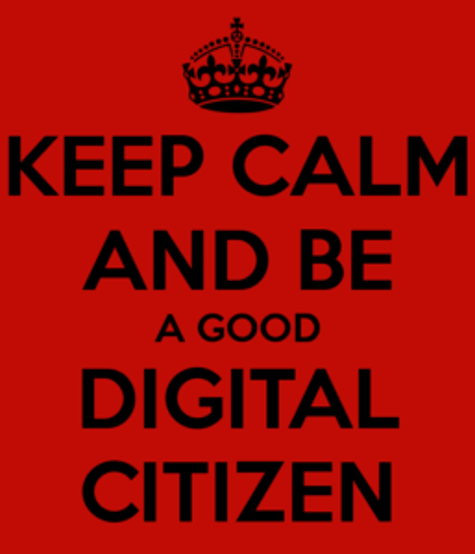The International Society for Technology in Education (ISTE) defines Digital Citizenship as "students understanding human, cultural and societal issues related to technology and practicing legal and ethical behavior."
There are 9 commonly accepted themes in Digital Citizenship that educators, students, and parents should endeavor to carefully consider.
1. Access: Good digital citizens are concerned that everyone has equitable access to technology and the Internet.
2. Commerce: Good digital citizens behave ethically when buying and selling online.
3. Communication: Just like in person communication, digital citizens must communicate fairly, honestly, and respectfully.
4. Literacy: Educators endeavor to teach students digital literacy, which is the skills needed live, learn, and work in the online community.
5. Etiquette: Digital etiquette, or "netiquette," is the code of conduct for online actions and procedures.
6. Law: Digital citizens understand that they are legally responsible for online words and deeds.
7. Rights & Responsibilities: Engaging with technology and the internet carries certain rights and responsibilities.
8. Health & Wellness: Digital citizens are concerned with physical and psychological well-being in the world of technology.
9. Security: Digital citizens practice self-protection online and respect the safety of others.
Teachers, are you interested in learning more about Digital Citizenship? The ISTE offers an online course, Digital Citizenship in Action for educators to learn how to teach, coach, and model for students healthy and responsible Digital Citizenship.
Parents, go to The Carnegie Cyber Academy to play some fun games with your child to learn more together about Digital Citizenship!
